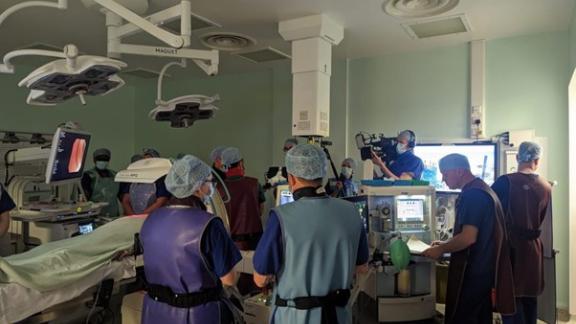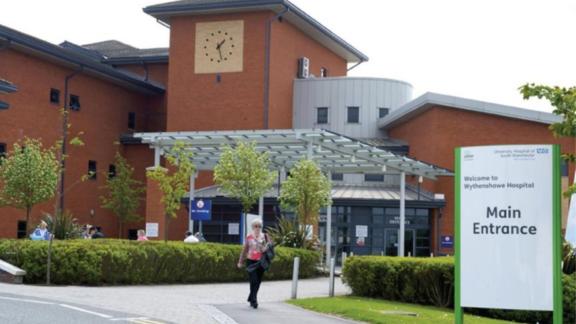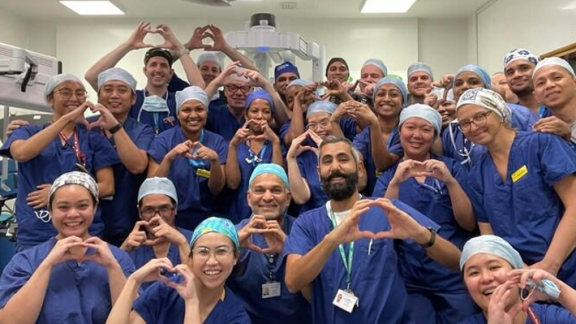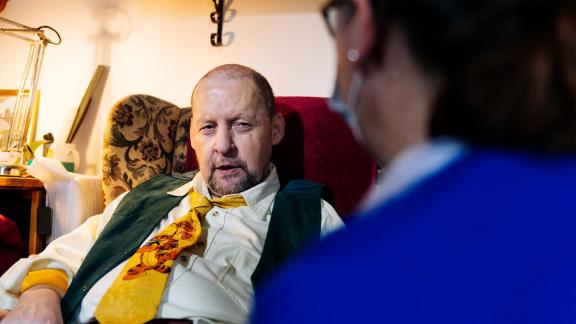Cutting-edge LungVision bronchoscopic navigation system

Overview
The Lancashire Teaching Hospitals NHS Foundation Trust aims to improve the accuracy of peripheral lung cancer diagnoses from 50 to 85 per cent, using the state-of-the-art LungVision bronchoscopic navigation system at Royal Preston Hospital.
What the organisation faced
Lung cancer is frequently diagnosed at a later stage than other cancers, due to there often being no signs at an early stage. Early diagnosis plays a crucial role in combating lung cancer, which claims the lives of 35,000 individuals annually in the UK. If patients face difficulties in obtaining accurate and early diagnoses, it severely impacts their access to the most suitable treatments at a critical point in their treatment.
Improvement
Professor Mohammed Munavvar, the trust’s consultant respiratory physician and interventional pulmonologist, researched extensively to identify the best solution to this challenging situation. When the LungVision system was identified, Rosemere Cancer Foundation, one of three charities based at Lancashire Teaching Hospitals, raised £237,500 to purchase the equipment for the respiratory team. The system focuses on making accurate lung cancer diagnoses, allowing doctors to perform real-time examinations of a patient's lungs using a bronchoscope - a thin, tube-like instrument with a light and a lens for visualisation that allows a deeper penetration into the patient’s lung with enhanced accuracy.
Outcome
Previously, an accurate diagnosis was achieved around 50 per cent. LungVision allows clinicians to safely navigate to greater depths of the lung, which significantly improves diagnostic yield and accuracy to over 85 per cent. Professor Mohammed Munavvar describes the kit as ‘focused, very targeted, highly specialised and very sophisticated.’
The technology will now be used to see two to four patients a week, with the procedure taking approximately an hour.
Professor Munavvar continues: “It will make a massive difference in terms of speeding up the diagnostic process and improving the chance of diagnosing lung cancer at an earlier stage, to enable us to plan targeted personalised treatment. It also prepares the way for us to introduce new, novel ways of treating the disease.”
With the purchase of the LungVision system, Royal Preston Hospital became the first in UK (third in Europe) to use the equipment and can now provide the specialised service for the whole of Lancashire and South Cumbria.
In addition, the team is in the process of actively sharing their experience in order to facilitate the setting up of this unique technique in other hospitals across the UK and beyond.
Lessons learned
- Investing in cutting-edge technologies can have a great impact on diagnostics and patient outcomes.
- Cross-sector collaboration between acute providers and the voluntary, community and social enterprise sector can play a key role in driving innovation, enabling services, and improving health outcomes.
Contact details and further information
To connect with the creators of this service, email Lancashire Teaching Hospitals NHS Foundation Trusts communication team.
Further information is available on the Rosemere Cancer Foundation website.



